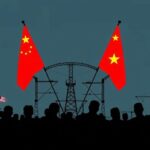Biden Administration Moves Forward with Increased Tariffs on Chinese Imports
Summary
The Biden administration has finalized substantial tariff increases on certain Chinese-made products, set to take effect on September 27, including a 100% tariff on electric vehicles, 50% on solar cells, and 25% on various other goods. This move is part of ongoing trade tensions amid a political clash over tariff policies led by Vice President Kamala Harris and former President Donald Trump, with implications for both American consumers and international relations with China.
The Biden administration has confirmed its decision to implement increased tariffs on various Chinese-manufactured products, building upon an announcement made earlier in May. Starting September 27, the tariff rate will rise to 100% on electric vehicles, 50% on solar cells, and 25% on several other items, including electric vehicle batteries, critical minerals, steel, aluminum, face masks, and ship-to-shore cranes, as stated by the U.S. Trade Representative’s Office. Moreover, forthcoming tariffs on additional products, such as semiconductor chips, are slated to commence over the next two years. This decision coincides with intense political discourse on tariffs between Vice President Kamala Harris and former President Donald Trump, the latter advocating for extensive new tariffs on all imports, in contrast to Harris’s argument that such proposals would inflate costs for American families. During his administration, Trump instituted significant tariffs on around $300 billion worth of Chinese imports, a policy that President Joe Biden has largely maintained. Following a comprehensive review from the USTR, Biden’s administration seeks to raise tariffs on approximately $15 billion of goods from China. The newly elevated tariffs align with broader economic strategies designed to strengthen domestic manufacturing sectors, particularly in clean energy and semiconductor industries. U.S. Trade Representative Katherine Tai proclaimed, “Today’s finalized tariff increases will target the harmful policies and practices of the People’s Republic of China that continue to impact American workers and businesses.” In response to these tariff escalations, it is anticipated that China will retaliate with its own tariffs on American goods, with Chinese foreign ministry spokesperson Wang Wenbin expressing opposition to the unilateral tariff imposition, stating that they violate World Trade Organization rules. Should he secure election, Trump has proposed significantly augmenting tariffs on imports globally, including calls for tariffs up to 20% on all foreign goods and a proposed 60% tariffs on Chinese imports.
The current U.S.-China tariffs serve as a continuation of trade tensions that have persisted for several years, particularly during and after the Trump administration. In 2018, Trump initiated tariffs on the grounds of addressing trade imbalances and intellectual property theft, leading to a trade war that has had lasting repercussions on the global economy. The Biden administration has approached the matter from a dual perspective of protecting American interests while also attempting to foster domestic industries. The recent tariff increases reflect an ongoing commitment to American manufacturing, particularly in key sectors identified as critical for the nation’s economic future, such as clean energy and technology. Both the Biden administration and trade representatives emphasize the detrimental impact of China’s trade practices on U.S. businesses and workers, while the potential for retaliation from China introduces additional complexities to the global trade landscape.
In conclusion, the Biden administration’s decision to elevate tariffs on specific Chinese goods underscores a strategic approach to economic policy aimed at bolstering domestic production and addressing longstanding trade disparities. The increased tariffs, effective September 27, are positioned against the backdrop of political debate regarding trade and their anticipated consequences on American consumers. The U.S. Trade Representative’s comments highlight the administration’s objectives to counteract detrimental Chinese economic practices, while the potential for retaliatory measures from China complicates the trade dynamics further. The future of U.S.-China trade relations remains uncertain as both sides navigate this challenging landscape.
Original Source: www.cnn.com








Post Comment